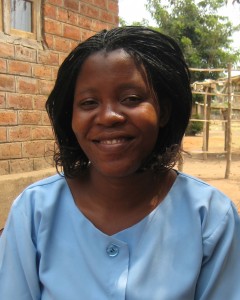
USAID's Infant & Young Child Nutrition Project
Advancing social and behavior change communication programs
Changes in feeding behaviors, such as practicing exclusive breastfeeding for the first six months, can significantly improve child health and nutritional status. Bringing about such changes requires a strategic communications approach that targets individuals, households, and communities.
Yet many programs have focused singularly on influencing caregiver behaviors while ignoring other influential household and community members. In many countries, lack of training and job aids for health providers and practical resources for program implementers has impeded progress in improving feeding behaviors.
Strengthening social and behavior change communication programs to prevent malnutrition was an essential component of our work. In each country, IYCN identified barriers and facilitators related to recommended behaviors and used targeted communications interventions to facilitate change and reinforce key messages with health workers, communities, and households, in addition to caregivers.
Through comprehensive capacity-building and training activities, IYCN influenced significant changes in practices among facility- and community-based health providers—ensuring that caregivers received accurate, actionable advice that would lead to critical feeding improvements and sustainable progress. We also engaged fathers, grandmothers, and community leaders to support improved feeding.
We documented these experiences, shared our tools with program implementers worldwide, and promoted practical approaches for advancing social and behavior change communication programs.
Set the stage for a new cadre of community nutrition workers in Malawi
 After examining current caregiver feeding practices and identifying practical behavior change solutions through formative research, the IYCN Project developed and launched a package of training materials in support of the Malawi Office of the President and Cabinet’s strategy to develop a new cadre of community nutrition workers.
After examining current caregiver feeding practices and identifying practical behavior change solutions through formative research, the IYCN Project developed and launched a package of training materials in support of the Malawi Office of the President and Cabinet’s strategy to develop a new cadre of community nutrition workers.
The project used the training package during a pilot intervention with 40 national and district-level trainers and 153 community workers in Salima District. Trained workers reached 1,000 households in 77 villages by making home visits and conducting cooking demonstrations to improve feeding practices and prevent malnutrition of children. The intervention, which has been adopted as part of the country’s Scaling Up Nutrition strategy, will be scaled up nationally to improve the nutritional status, health, and HIV-free survival of infants and young children.
Highlights
- Trained nearly 5,900 trainers; health, social, and community workers; peer counselors; mother support group leaders; agriculture extension workers; and others to support improved feeding practices through counseling, home visits, cooking demonstrations, weighing sessions, health talks, and mother support groups in 12 countries.
- Assisted the governments of Malawi, Mozambique, Nigeria, and Zambia to adapt the United Nation’s Children’s Fund Community Infant and Young Child Feeding Counselling Package. Partners in Malawi and Zambia are scaling up use of the materials for training community-based workers nationally.
- Distributed more than 4,300 sets of counseling cards, in three local languages, to health facility- and community-based providers across Ethiopia.
- Disseminated more than 3,000 copies of tools for reaching caregivers, households, and communities to global health stakeholders.
Photo: PATH/Evelyn Hockstein, PATH/Christine Demmelmaier


